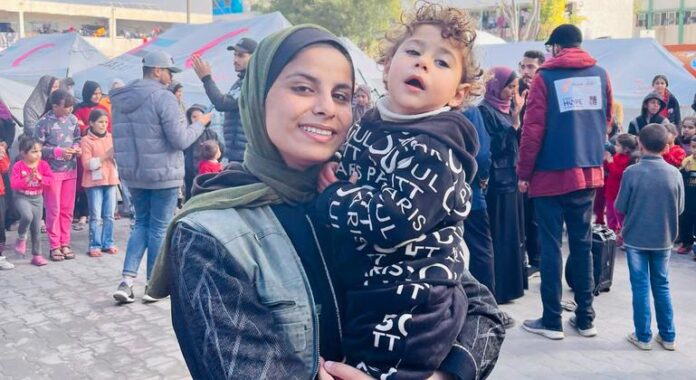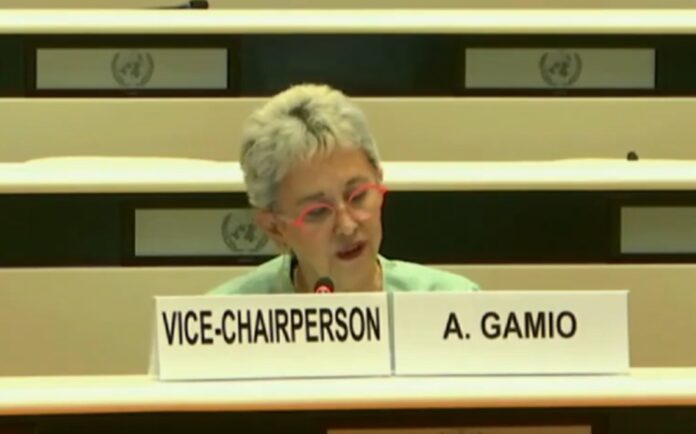On 15 April 1967, a delegation led by Dr. King met with the legendary Ralph Bunche and other top UN officials. Mr. Bunche was the first African American to receive the Nobel Peace Prize, and Dr. King was the second.
On the occasion of the International Day for People of African Descent, marked annually on 31 August, watch this report from the archives about the Mr. Bunche, a UN legend, below:
During the epic meeting with UN officials, Dr. King presented a petition, calling for an immediate and peaceful solution to the Vietnamese conflict (1961-1975).
Earlier that day, he had marched alongside 125,000 protesters in what was the first of many mass marches in opposition to the conflict.
Watch UN Video’s Stories from the UN Archive episode on the world-renowned civil rights advocate below:
‘No justice without peace, no peace without justice’
Outside UN Headquarters in the spring of 1967, Dr. King read aloud the petition, which even today, echoes calls for peace in ongoing wars around the world.
“From towns and villages, cities, campuses and farms, we have come in tens of thousands to march and rally at the United Nations in New York and at the birthplace of the world organization in San Francisco on the 15th day of April 1967,” he said. “We the participants in today’s unprecedented national peace demonstration, although of many national origins, faiths and shades of political opinion, are united in our conviction of the imperative need for an immediate, peaceful solution to an illegal and unjustifiable war.”
“We are determined that the killing be stopped and that a nuclear holocaust be avoided,” he said. “We rally at the United Nations in order to reaffirm our support of the principles of peace, universality, equal rights and self-determination of peoples embodied in the Charter and acclaimed by mankind, but violated by the United States.”
In terms of the priority of the peace movement and the civil rights movement, Dr. King said “from a content point of view, the issues are inextricably tied together”.
“In the final analysis, there can be no peace without justice, and there can be no justice without peace,” he said.
Inspiring future generations
The civil rights leader continued to advocate for peace throughout the last year of his life before he was assassinated in 1968, exactly one year after he visited UN Headquarters. His anti-war activism reinforced the connection between the conflict abroad and injustice at home in the US.
Dr. King’s lifetime efforts, from the March to Montgomery to his iconic I Have a Dream speech in Washington, have inspired future generations, including his own granddaughter. Earlier this year, 15-year-old activist Yolanda Renee King addressed an audience in the General Assembly Hall at a special commemoration of the International Day of Remembrance of Victims of Slavery and the Transatlantic Slave Trade, marked annually on 25 March.
“I stand before you today as a proud descendant of enslaved people who resisted slavery and racism like my grandparents, Dr. Martin Luther King Jr. and Coretta Scott King,” she said from the green marbled podium in the Assembly Hall.
“My parents, Martin Luther King III and Arndrea Waters King, have also dedicated their lives to putting an end to racism and all forms of bigotry and discrimination,” said the author of the newly released children’s book We Dream a World, which pays tribute to her celebrated grandparents.
“Like them, I am committed to the fight against racial injustice and to carrying on the legacy of my grandparents who championed social justice and equality,” Ms. King said, calling on young people around the world to take action.
“We must connect via the internet and organise across national boundaries around the world. This will open up new possibilities for global campaigns to advance human rights and social justice in all nations. I hope that my family’s legacy of social justice advocacy will inspire my generation to action and to confront issues affecting our world.”
Watch her full statement below:
Stories from the UN Archive
UN News is showcasing epic moments across UN history, cultivated from the UN Audiovisual Library’s 49,400 hours of video and 18,000 hours of audio recordings.
Catch up on UN Video’s Stories from the UN Archive playlist here and our accompanying series here.
Join us next time for another dive into history.













